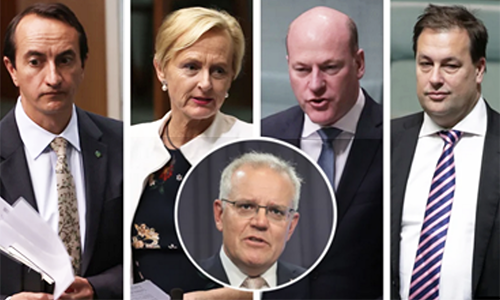It was supposed to be the broadest shoulders who were going to fund the government’s overspending. Now it seems to be the broadest bellies, too. The government is to extend George Osborne’s sugar tax to milkshakes and other milk-based drinks. It is also to consult on lowering the threshold at which the sugar tax becomes due on drinks from 5 grams per 100 ml to 4 grams. That will see hundreds of products become liable for the levy – many of whose recipes had already been changed to avoid the sugar tax. A lower threshold of 4 grammes would add an average of 18 pence to the price of a litre of soft drink.
What taxes on food do is to impose regressive levies on the poor
It says much that the initiative to increase the sugar tax seems to have come from the Treasury. Health secretary Wes Streeting, on the other hand, said last year that he did not wish to increase taxes on food during a cost of living crisis. If the aim of a sugar tax is mostly to improve our health, surely the government would be congratulating drinks companies on changing their recipes to lower sugar content. Instead, they are being treated as tax avoiders who must now be struck by having the goalposts moved.
But then has the reformulation of sugary drinks done much to improve health anyway? The sugar tax may or may not have contributed to a lowering of sugar intake; contrary to what many people may imagine, per capita sugar intake in Britain has been on a downward trend since the 1970s, and has fallen by around a third since then. Obesity, however, has moved very much in the opposite direction and has continued to increase since the sugar tax was introduced in 2016. If we are fatter, it is either because we are eating more of other kinds of food – or because we are taking less exercise.
That is the point about food: unlike tobacco, and a lesser extent alcohol, fats and sugars are not poisons. They can be part of a perfectly healthy diet – unless, that is, they are eaten to excess. This is why food taxes are always doomed to failure: what might be a healthy meal for an active person might be grossly too much food for another.
The Conservatives’ efforts to control portion sizes in restaurants – which they tried to do through voluntary agreement with the threat of legislation if that failed – ignored something which should have been obvious: if you are a 6ft 18-year-old who has been playing rugby all afternoon, your need for calories is vastly different from your 4 ft 8, 80-year-old grandmother who has spent the day knitting. Trying to regulate how much they eat through one standard, government-approved portion size is ridiculous.
What taxes on food do achieve, however, is to impose regressive levies on the poor. It is inevitable that it is they who will end up paying the most, proportionally, because they spend a higher percentage of their income on food. Moreover, the new tax on milkshakes will not apply to drinks prepared in cafes and restaurants, only on prepared drinks sold in containers. Those who can afford to eat out regularly will dodge much of the levy.
If we want to reduce obesity there really is only one way, which is to educate people about the dangers of being overweight – just as the government did with smoking from the 1960s onwards. That approach was hugely successful at reducing smoking prevalence. No one can be under any illusions that smoking is very likely to kill you. Yet with obesity a different approach seems to rule: we are told not to ‘fat shame’ people. Obesity is treated as a disease, rather than as the result of poor decisions. Blame is transferred from the individual to the food industry. This approach has failed miserably, and raising the sugar tax will do nothing to change that.









